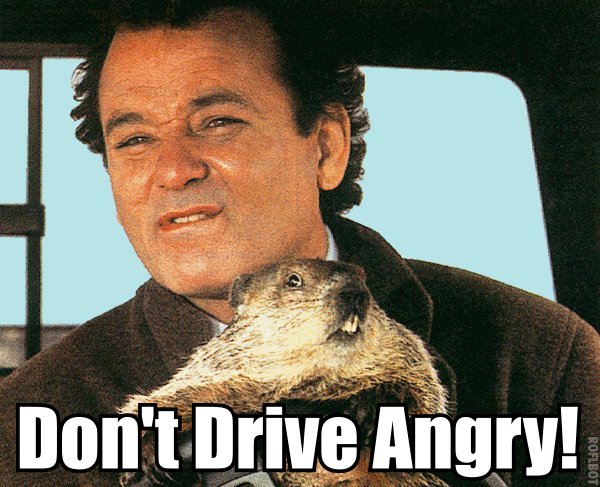It’s Groundhog’s Day!
The perfect day to watch one of my favorite movies of all time. Groundhog Day, starring Bill Murray, is not only a hilarious movie, but it also poses some profound existential questions:
“What would you do if you were stuck in one place and every day was exactly the same, and nothing that you did mattered?”
As a student of philosophy I cannot help but see the resemblance in that line from the film with a famous question Nietzsche once posed in his book The Gay Science.
“What, if some day or night a demon were to steal after you into your loneliest loneliness and say to you: ‘This life as you now live it and have lived it, you will have to live once more and innumerable times more; and there will be nothing new in it, but every pain and every joy and every thought and sigh and everything unutterably small or great in your life will have to return to you, all in the same succession and sequence— even this spider and this moonlight between the trees, and even this moment and I myself. The eternal hourglass of existence is turned upside down again and again, and you with it, speck of dust!’
“Would you not throw yourself down and gnash your teeth and curse the demon who spoke thus?… Or how well disposed would you have to become to yourself and to life to crave nothing more fervently than this ultimate eternal confirmation and seal?”
Both the movie and Nietzsche are asking us to imagine how we would cope if this life, or this day, were all we had. Not all we have in the sense that we only have it now and it will soon be gone, but in the sense that this is our existence forever. We have only this life, and we will have it forever. It’s an idea reminiscent of the Hindu concept of Samsara, or the cycle of reincarnation. But with one important difference, instead of reincarnating into different lives, we are continually born back into the same one.
Nietzsche wasn’t asking us to believe that this was literal, and he wasn’t trying to tell us what will happen when we die. But he was asking us to reflect on that idea and see if it would change how we regard our lives and our experiences. Would we go mad? Would we reject this life as an unbearable torture? Or…could we learn to love it?
He called it amor fati, the love of fate. We must learn to love our lives, even when we’re stuck in existential hell. And like Bill Murray’s character in the film, it might take us a while to figure out how to do that. We’re stuck in this life, and we can hate it and struggle against it; we can turn to selfish hedonism to numb ourselves from the existential dread, we can fall into despair. Or we can follow the path of love and acceptance, and maybe, just maybe, then we’ll be free.
Which path will you choose?
Relephant:
I’ve Discovered Proof of Reincarnation.
Author: Kathryn Muyskens
Editor: Travis May
Photo: Benjamin Forrest/Flickr
 Share on bsky
Share on bsky


Read 0 comments and reply